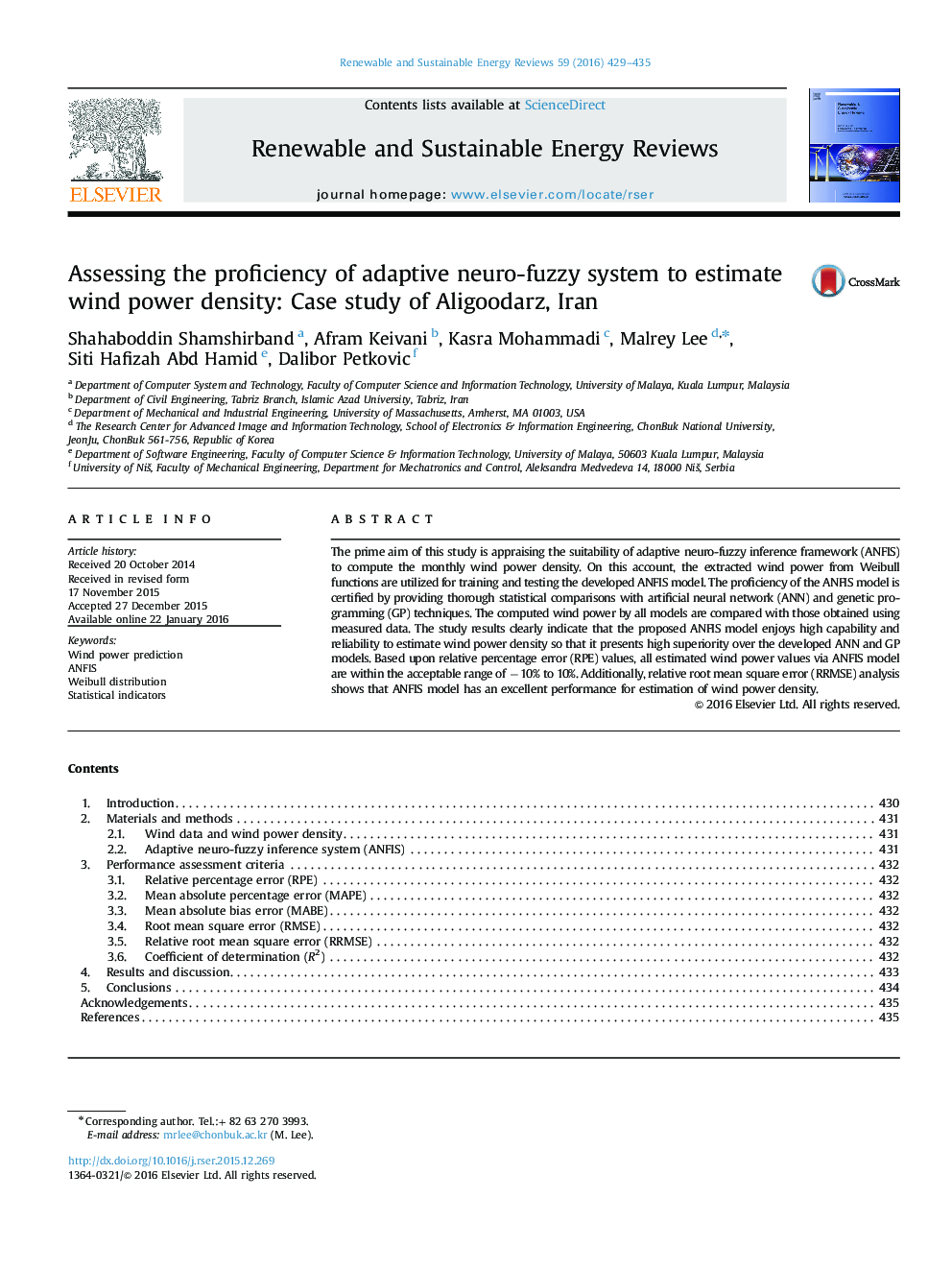| Article ID | Journal | Published Year | Pages | File Type |
|---|---|---|---|---|
| 8114009 | Renewable and Sustainable Energy Reviews | 2016 | 7 Pages |
Abstract
The prime aim of this study is appraising the suitability of adaptive neuro-fuzzy inference framework (ANFIS) to compute the monthly wind power density. On this account, the extracted wind power from Weibull functions are utilized for training and testing the developed ANFIS model. The proficiency of the ANFIS model is certified by providing thorough statistical comparisons with artificial neural network (ANN) and genetic programming (GP) techniques. The computed wind power by all models are compared with those obtained using measured data. The study results clearly indicate that the proposed ANFIS model enjoys high capability and reliability to estimate wind power density so that it presents high superiority over the developed ANN and GP models. Based upon relative percentage error (RPE) values, all estimated wind power values via ANFIS model are within the acceptable range of â10% to 10%. Additionally, relative root mean square error (RRMSE) analysis shows that ANFIS model has an excellent performance for estimation of wind power density.
Related Topics
Physical Sciences and Engineering
Energy
Renewable Energy, Sustainability and the Environment
Authors
Shahaboddin Shamshirband, Afram Keivani, Kasra Mohammadi, Malrey Lee, Siti Hafizah Abd Hamid, Dalibor Petkovic,
